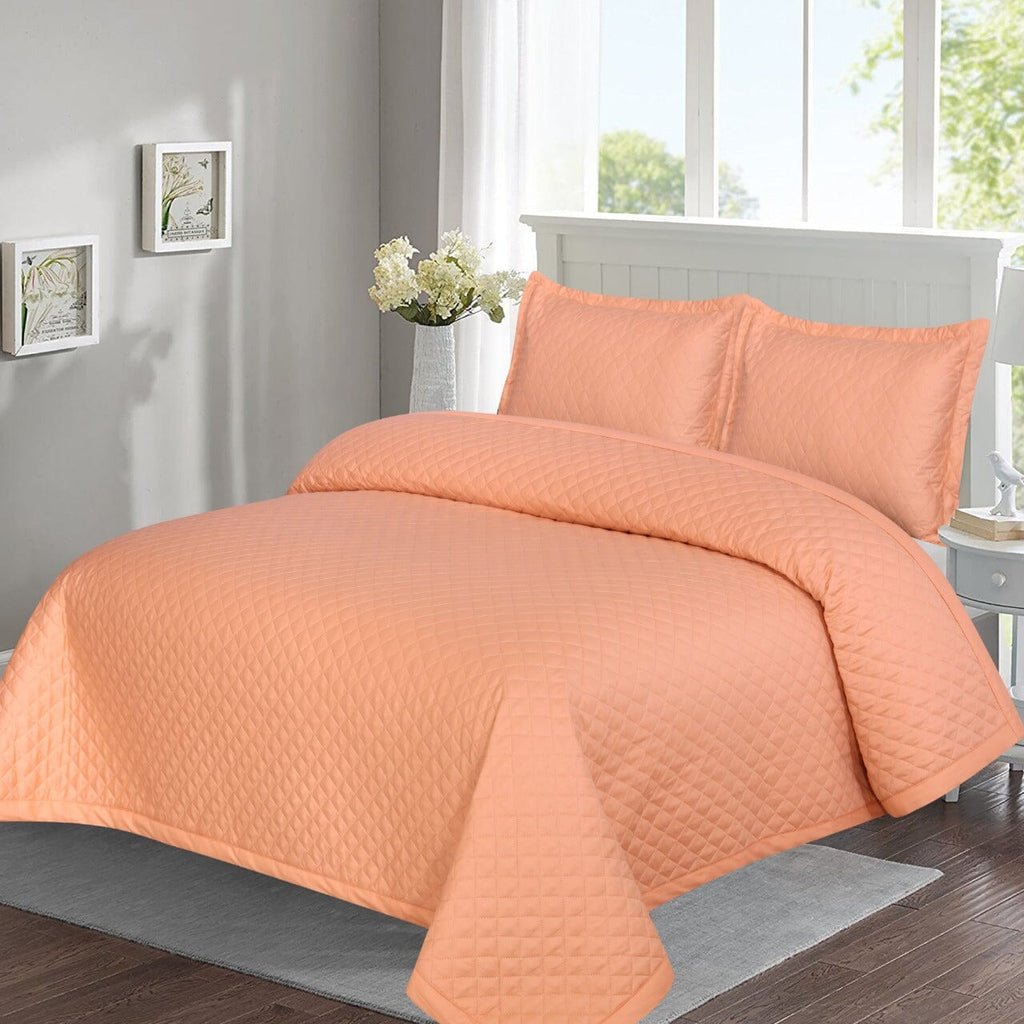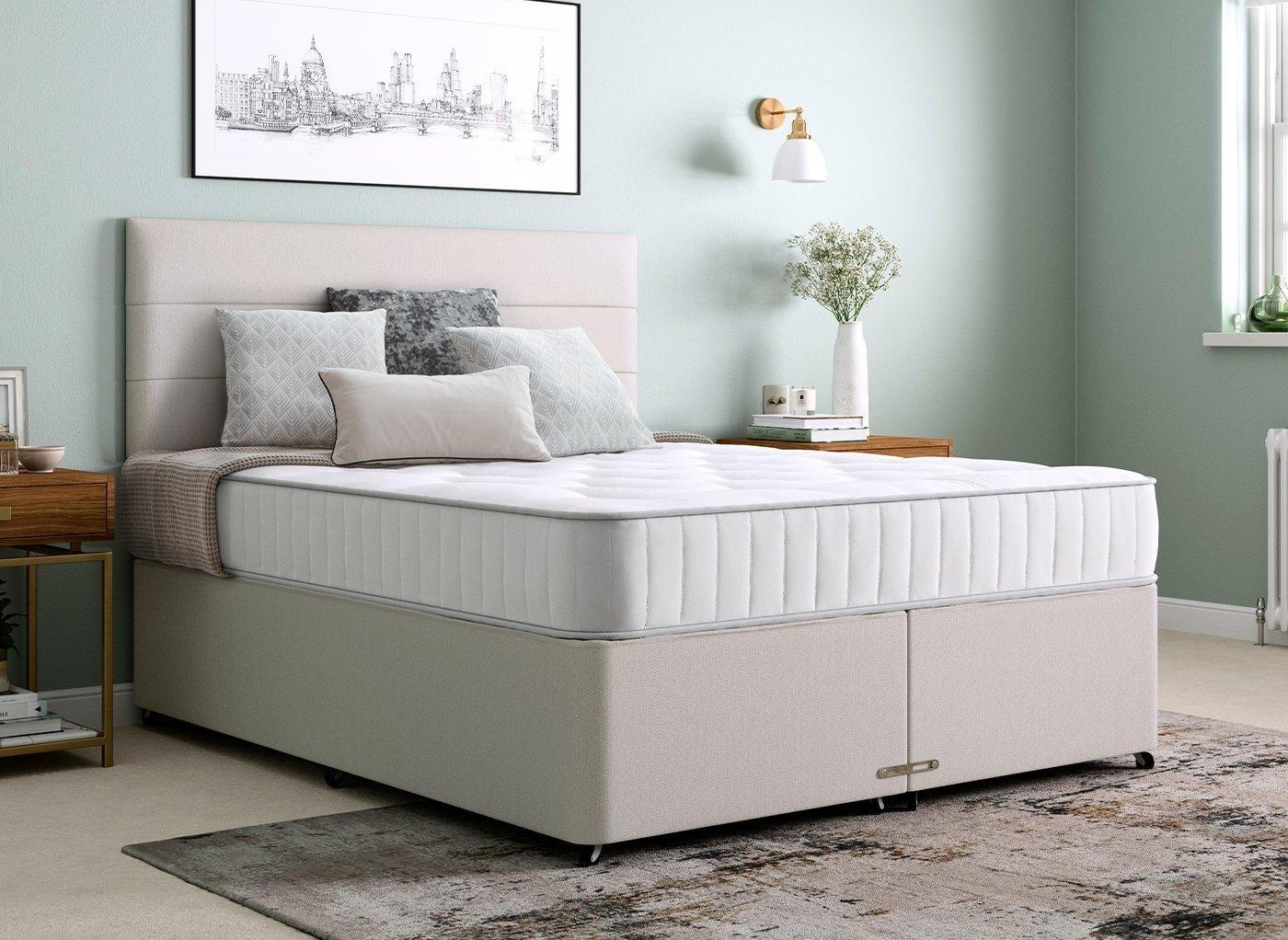Getting a good night’s sleep is good for overall health and well-being. While various factors contribute to restful sleep, one often aspect is the quality of bedding. The right bedding can make a significant difference in the quality and duration of sleep. Most of us have experienced the frustration of poor-quality sleep. Whether it involves restless tossing and turning or frequent awakenings during the night, a night of inadequate sleep can leave us feeling miserable. But could upgrading your bedding enhance the quality of your sleep? We all recognize the significance of a good night’s sleep. It provides our bodies with crucial time to rejuvenate and recover, promoting a healthy lifestyle.
Additionally, quality sleep sharpens the mind and reduces the risk of chronic diseases and obesity. Unfortunately, a National Sleep Foundation survey reveals that only 40 percent of individuals obtain the necessary amount of sleep, with many also struggling with insomnia. Given the vital role sleep plays in our mental and physical well-being, it is important to take steps toward achieving more restful sleep. In this article, we will explore how better bedding can improve your sleep and provide you with tips on selecting the right bedding materials and accessories.
Comfort and Support
One of the primary ways in which better bedding can enhance your sleep is providing comfort and support. The mattress, pillows, and sheets all play crucial roles in creating a comfortable sleep environment. A quality mattress that suits your individual needs, whether it’s firm or soft, can promote proper spinal alignment and alleviate pressure points. This can help reduce tossing and turning, allowing you to fall asleep faster and experience a deeper, more restorative sleep. Similarly, pillows that offer adequate support to your head and neck can prevent stiffness and discomfort, ensuring a comfortable sleeping posture. Opting for high-quality sheets made from soft, breathable materials like cotton or Egyptian Cotton can also enhance comfort regulating temperature and reducing night sweats.
Temperature Regulation
Maintaining a comfortable sleep temperature is essential for uninterrupted sleep. Better bedding can play a crucial role in temperature regulation, especially during hot or cold seasons. Bedding made from breathable materials like cotton or linen can promote airflow and prevent overheating wicking away moisture. On the other hand, during colder months, bedding materials like flannel or microfiber can provide warmth and insulation.
Additionally, investing in a mattress with cooling properties, such as gel-infused memory foam or breathable latex, can help regulate body temperature, reducing the likelihood of waking up from discomfort caused heat buildup.
Allergen Control
For people with allergies or respiratory conditions, better bedding can significantly improve sleep quality. Dust mites, pet dander, and other allergens often accumulate in bedding, leading to discomfort and disturbed sleep. Opting for hypoallergenic materials, such as anti-allergen pillows and mattress covers, can create a barrier against these irritants, reducing the risk of allergic reactions and improving overall sleep hygiene. Washing bedding regularly at high temperatures can also help eliminate allergens. Additionally, choosing natural materials like organic cotton or Egyptian Cotton sheets can minimize exposure to chemicals and potential allergens found in synthetic materials.
Psychological Impact
Beyond physical comfort, the quality and aesthetics of bedding can have a psychological impact on sleep. A visually appealing and well-made bed can create a calming environment, promoting relaxation and a sense of tranquility. Investing in bedding that reflects your personal style and evokes positive emotions can contribute to a more enjoyable bedtime routine and enhance the overall sleep experience.

Tips for Selecting Better Bedding
Understand Your Sleep Needs
Before embarking on the journey of selecting new bedding, it’s important to understand your specific sleep needs. Consider factors such as your preferred sleep position, any existing health conditions, and personal comfort preferences. For example, side sleepers may benefit from a softer mattress to alleviate pressure points, while back sleepers may require a firmer surface for proper spinal alignment. Understanding your needs will guide you in choosing bedding that caters to your unique sleep requirements.
Invest in a Quality Mattress
A good mattress is the foundation of quality sleep. Take the time to research and test different types of mattresses to find the one that suits you best. Factors to consider include mattress type (such as memory foam, latex, or innerspring), firmness level, and durability. Additionally, look for features like motion isolation and temperature regulation that can enhance sleep quality. Opt for a mattress that offers a trial period to ensure it meets your expectations.
Prioritize Pillow Support
Choosing the right pillow is essential for neck and spine alignment. Consider your sleep position when selecting a pillow. Side sleepers generally benefit from a higher loft pillow to maintain proper alignment, while back and stomach sleepers may prefer lower loft options. Additionally, consider the material of the pillow, such as memory foam, latex, or down alternative, based on your comfort preferences and any specific allergies or sensitivities.
Select Breathable Bedding Materials
Breathable bedding materials help regulate body temperature and promote airflow, enhancing sleep comfort. Look for sheets, duvet covers, and pillowcases made from natural fabrics like cotton, linen, or bamboo. These materials are known for their breathability, moisture-wicking properties, and softness. They allow for better ventilation, preventing overheating and night sweats, especially during warmer months. Avoid synthetic materials that can trap heat and moisture, leading to discomfort and disrupted sleep.
Consider Allergen Control
If you have allergies or sensitivities, choosing hypoallergenic bedding can improve your sleep quality. Look for mattress and pillow protectors that create a barrier against common allergens like dust mites, pet dander, and pollen. These protectors should be easily removable and washable to maintain cleanliness and reduce allergen buildup. Opt for hypoallergenic fillings for pillows, such as microfiber or memory foam, and consider using allergen-proof pillowcases and sheets to further minimize exposure to irritants.
Evaluate Durability and Maintenance
When selecting bedding, consider durability and maintenance requirements. High-quality bedding may come at a higher initial cost but can offer better longevity and durability. Look for bedding that is easy to clean and maintain, as regular washing is essential for hygiene. Check the manufacturer’s recommendations for care instructions to ensure you can properly care for the bedding over time.
Happy Bedding!!!



